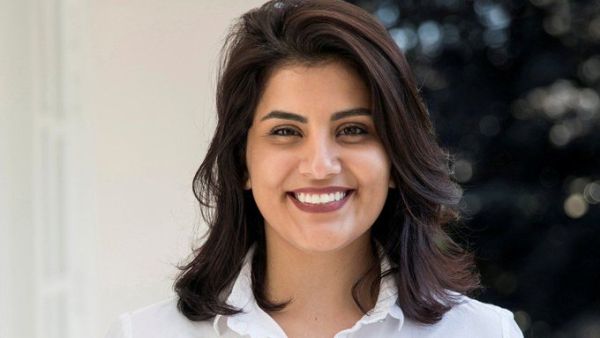Loujain al-Hathloul, one of Saudi Arabia’s most high-profile women’s rights activists, was sentenced Monday to more than five years in prison after being convicted on charges that include seeking to change the Saudi political system and harming national security. But she seems set to be released by next March, sources said, based on time served.
She was sentenced under a provision of the country’s counterterrorism law in a ruling that brings to a close a case that has drawn much international attention and criticism.
With the verdict, Riyadh seems to be sending a signal that Saudi authorities will not interfere with the judicial process despite outside pressures and the possibility that US President-elect Joe Biden will take a more critical approach to Riyadh once he takes office, analysts say. At the same time, the ruling reflects the judiciary’s desire to ensure a quick release for the defendant.
Loujain al-Hathloul, who fought Saudi Arabia's ban on women driving and became one of the kingdom’s most prominent prisoners, has been sentenced to nearly 6 years in prison. https://t.co/8QKuCR7wsV
— The New York Times (@nytimes) December 28, 2020
Rights group Prisoners of Conscience said Hathloul could be released in March 2021 based on time served. She has been imprisoned since May 2018, and 34 months of her sentencing will be suspended.
Her family said in a statement she will be barred from leaving the kingdom for five years and required to serve three years of probation after her release.
Hathloul was found guilty and sentenced to five years and eight months by the kingdom’s anti-terrorism court on charges of pursuing a hostile foreign agenda, using the internet to harm public order and cooperating with individuals and entities that have committed crimes under anti-terror laws, according to state-linked Saudi news site Sabq. The charges all come under the country’s counterterrorism law.
Earlier this month, Saudi Foreign Minister Prince Faisal bin Farhan Al Saud told AFP that Hathloul was accused of contacting “unfriendly” states and providing classified information, but her family said no evidence to support the allegations had been put forward.
She has 30 days to appeal the verdict.
Sabq, which said its reporter was allowed inside the courtroom, reported that the judge said the defendant had confessed to committing the crimes and that her confessions were made voluntarily and without coercion. The report said the verdict was issued in the presence of the prosecutor, the defendant, a representative from the government’s Human Rights Commission and a handful of select local media representatives.
Backdating term means she has 3 months left.
— amna (@IAmAmnaNawaz) December 28, 2020
The Saudi kingdom accused her of mounting a campaign to undermine the royal family.
Among her charges:
-mtg with UK + EU diplomats
-talking ab human rights on a messaging app
-€50 for speaking @ conferencehttps://t.co/18JVvnDntX
The 31-year-old Saudi activist has long been outspoken about human rights in Saudi Arabia, even from behind bars.
In 2018, she attended a public meeting in Geneva to brief the Committee on the Elimination of Discrimination against Women (CEDAW) on women’s rights in Saudi Arabia.
Her trial began in March 2019 in Riyadh’s criminal court after ten months in detention.
The prosecutor had called for the maximum sentence of 20 years.
In November 2020, her case was transferred from regular criminal court to a special terrorism court.
— Anti-terrorism law —
The women’s rights activist was convicted of “various activities prohibited by the anti-terrorism law,” Sabq cited the court as saying.
The court handed a prison term of five years and eight months, but suspended two years and 10 months of the sentence “if she does not commit any crime” within the next three years, they added.
“A suspension of 2 years and 10 months in addition to the time already served (since May 2018) would see her (released) in approximately two months,” Lina al-Hathloul, the activist’s sister, wrote on Twitter.
Another source close to her family and the London-based campaign group ALQST said she would be released by March next year.
This article has been adapted from its original source.








